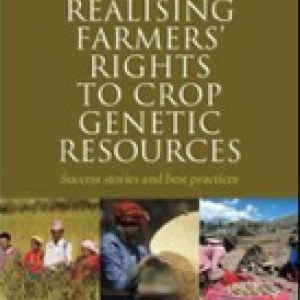
The book summary says the following: Farmers' Rights are essential for maintaining crop genetic diversity, which is the basis of all food and agricultural production in the world. The International Treaty on Plant Genetic Resources for Food and Agriculture recognizes Farmers' Rights and provides for relevant measures. However, implementation is slow, and in many countries there is resistance. This book shows the necessity of realizing Farmers' Rights for poverty alleviation and food security, the practical possibilities of doing so, and the potential gains for development and society at large.
It provides decision-makers and practitioners with a conceptual framework for understanding Farmers’ Rights and success stories showing how each of the elements of Farmers' Rights can be realized in practice. The success stories have brought substantial achievements as regards one or more of the four elements of Farmers' Rights: the rights of farmers to save, use, exchange and sell farm-saved seed; the protection of traditional knowledge; benefit- sharing; and participation in decision-making.
This does not mean that these examples are perfect. Challenges encountered on the way are conveyed and offer important lessons. The stories represent different regions and localities, including Europe, Asia, Africa and Latin America, as well as various categories of stakeholders and types of initiatives and policies.
For more details see here.
Citation: Andersen, R & Winge, T (eds) (2013) Realising Farmers' Rights to Crop Genetic Resources: Success Stories and Best Practices. Routledge, London and New York.












Post a new comment »